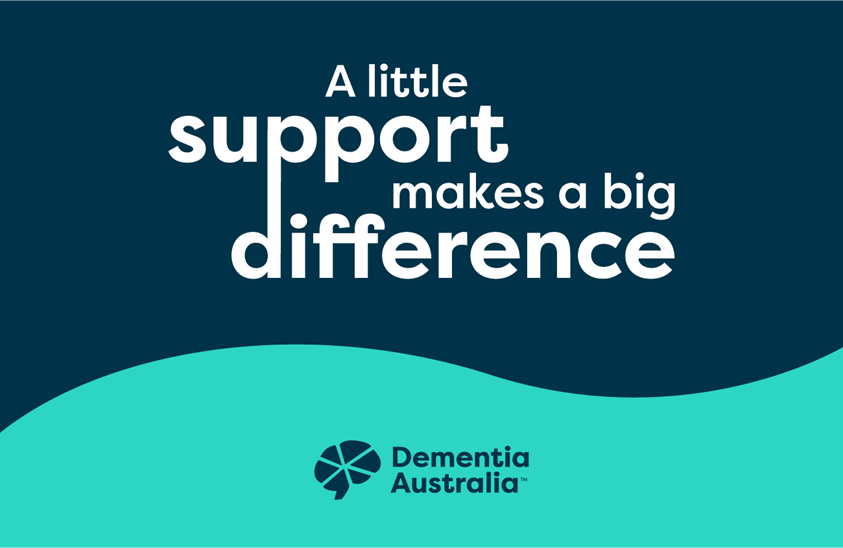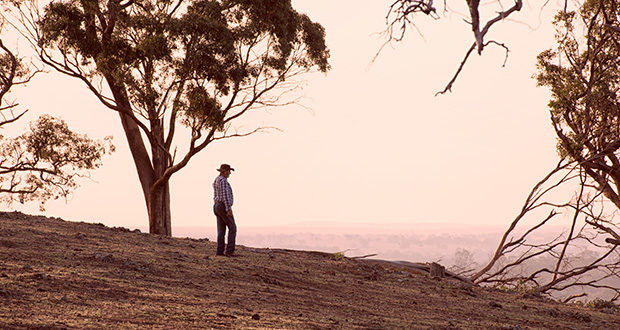Dementia advocate Mick Simpson was diagnosed with Lewy Body dementia in 2018 and is now actively spreading awareness – quite literally, as he's walked over 180km this year.
But, while on the phone with Aged Care Insite, he brought to light that healthcare services for people with dementia are still far from perfect.
"I just feel so frustrated," Simpson said.
"Trying to get people into the country areas, it's unbelievably hard.
"Unless awareness is put out that we need more expert people in rural areas to help us, we will continue to be stuck."
Simpson, who lives in rural Kyabram, a large town in the Goulburn Valley in Victoria, said they urgently need doctors in those areas 'that can handle it'.
"Those professionals coming from Melbourne or Sydney every six months only sit with you for 10 minutes and then charge you $300 – it's ridiculous.
"All they do is come up here, force you through, and then go back to the city. And that's the honest truth about it.
"It doesn't matter in what state you're in; that's what it's like in the country."
People living with dementia need continuous care from various healthcare services, but access to those decreases with remoteness.
Twenty-eight per cent of the Australian population lives in remote parts of the country, and figures repeatedly show a marked decline in health specialist services in rural areas.
For every 100,000 people living in remote Australia, less than 61 specialists are available compared to 143 for those residing in metropolitan areas.
"Healthcare professionals and the government are sweeping dementia under the carpet, especially getting help out in rural and remote areas," Simpson said.
"In farm areas, getting help from GPs and professionals takes so long.
"The frustration out here in the country is just unbelievable, and you can't ignore it anymore.
Simpson said that in his experience, GPs are 'only guessing' and have no clue about what dementia actually is.
"People with dementia don't know where to go to get help in any shape or form because their doctors aren't providing them with the information," he said.
"There are hundreds and hundreds of people around the country that haven't been diagnosed, but they're just too frightened to go to the GP or the neurologist."
Stigma and discrimination around dementia continue to discourage people from seeing their GP or health care professional because they worry about how they might be treated.
A global study found that over 60 per cent of health practitioners still believe dementia is a normal part of ageing.
The research also revealed that 40 per cent of those surveyed said healthcare professionals ignore people with dementia when seeking help.
An Australian study found that a GPs understanding and attitude toward dementia can vary significantly and result in under or delayed detection, which is associated with poorer health outcomes for the patient.
On the other side, GPs report they receive inadequate training in distinguishing between symptoms of dementia and typical signs of ageing.
Considering GPs are often the primary point of contact for people with dementia and their caregivers, those living in rural and remote parts of Australia struggle to find adequate support.
"It's not the 1900s anymore; it's 2022. We've got to get our act together and start working as a team," Simpson said.
But prejudiced beliefs are not only held by some healthcare practitioners; discrimination and stigma are still rife within all parts of Australia's communities.
The chief of Dementia Australia, Maree McCabe, said that's because dementia is an 'invisible disability'.
"Often, what we can't see we don't understand, and then what we don't understand we tend to avoid," she said.
"Most of the time, it's not intentional. I think people feel embarrassed or uncertain – they just don't know what to say; they're afraid that if they say the wrong thing, it will cause upset.
"I think people generally want to be supportive and help; they just don't know how to."
Nearly 90 per cent of those living with dementia say they feel patronised by people or treated as if they're less intelligent.
Over 80 per cent reported they had not been invited to any social events since their diagnosis.

Discriminative behaviour can lead to higher risks of social isolation, depression, and overall poorer physical and mental health outcomes for people with dementia.
"People living with dementia share that the biggest barriers are discrimination from family members, loved ones, health professionals in some cases, and the community at large," McCabe said.
"This is really based because people in the community don't have a good understanding of dementia."
McCabe said that, although awareness around the disease is increasing, we still have a long way to go to tackle discrimination against people impacted by dementia truly.
"It's essential that we give people the opportunity to understand what dementia is, how it can affect people living with it, and what they can do to support people to live well for longer," she said.
"And if you know someone diagnosed, please stay in touch with them. It might be a regular phone call to check-in."
Do you have an idea for a story?Email [email protected]
 Aged Care Insite Australia's number one aged care news source
Aged Care Insite Australia's number one aged care news source


Just want to say what a really valid article, good read and I wholeheartedly agree with Mick Simpson. Hope things go well with you Mick. Thank you, Regards, Sharon